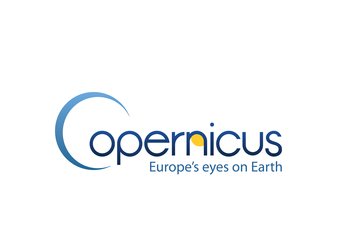Philippe Brunet: Director of Aerospace, Maritime, Security and Defence Industries, European Commission
Philippe Brunet is the Director of Aerospace, Maritime, Security and Defence Industries within the European Commission’s Directorate General Enterprise and Industry. In an interview, he discusses the wide range of benefits the Copernicus programme provides.

Philippe, a native of France, took up his position as Director of Aerospace, Maritime, Security and Defence Industries in January 2013. His responsibilities include the implementation of Copernicus, with services based on Sentinel data offered on a full, open and free-of-charge basis, and the development of civil and military synergies in security and defence matters to render the defence industry competitive and underpin a credible and effective Common Security and Defence Policy.
ESA: The EU is leading the Copernicus programme. What makes Copernicus so special compared to other Earth observation programmes worldwide?
Philippe Brunet
Copernicus consists of a complex set of systems which collect data from multiple sources. These are mainly Earth observation satellites and in situ sensors. Copernicus processes these data and provides users with reliable and up-to-date information through a set of services related to environment and security.
This programme is unique because of the variety of the services it provides and of the technical characteristics of its observation satellites, the Sentinels. No other organisation or nation in the world has developed, or is developing, such an ambitious Earth observation programme.
The services address six thematic areas: land, marine, atmosphere, climate change, emergency management and security. Moreover, the family of the Sentinels will be placed in diverse orbits (e.g. low Earth and geo-stationary orbits) and will contain a variety of instruments (e.g. radar, Optical and altimeters). This diversity will provide the most comprehensive, frequent and reliable source of space-based Earth observation data in the world.
ESA: How does Copernicus fit into the overall EU policy framework?
Philippe Brunet
Copernicus is a programme to be delivered under the Europe 2020 strategy for smart, sustainable and inclusive growth. It will benefit a wide range of Union policies and contribute to reaching the objectives of Europe 2020. In particular, this programme will support the development of an effective European space policy which provides the tools to address some of the key challenges the European Union has to face, notably in the areas of the environment and civil security. Copernicus also constitutes a cornerstone of EU industrial policy, and will generate significant economic and social benefits. The programme will boost research, innovation and the development of commercial applications (the so-called ‘downstream services’) in many different sectors, notably thanks to a full and open access to Copernicus observation data and information products.
ESA: Who will benefit from the programme and how?
Philippe Brunet
The main users of Copernicus services are European policymakers and national, regional and local public authorities. They need relevant information to develop environmental legislation and policies or to take critical decisions in the event of an emergency, such as a natural disaster or a humanitarian crisis.
Moreover, the Copernicus services will support a wide range of applications which will bring socio-economic benefits, notably to European citizens. They include environment protection, management of urban areas, agriculture, forestry, fisheries, health, transport, climate change, sustainable development, civil protection and tourism.
Furthermore, Copernicus is a perfect example of a European initiative that can drive technological development and innovation, enhance industrial competitiveness, foster growth and create jobs. In particular, Copernicus will support an emerging European observation service industry mainly made up of SMEs and start-ups, which are the backbone of the European economy. In these times of economic difficulties, this European investment can only be welcomed!
ESA: The free and open Sentinel data policy raises high expectations in the user community. Do you expect this policy to change over time, or can users rely on a free supply of Sentinel data for their business plans?
Philippe Brunet
The principle of full, free and open access to data will enable innovative business initiatives of all sizes to flourish and therefore will support job creation and economic growth in Europe. This principle is enshrined in the Copernicus Regulation which covers the period 2014-2020. As such, it has received the support of the European Parliament and of the European Union Member States. They are conscious, as the Commission is, of the necessity to provide stable conditions in order for businesses to foster and to invest.
We cannot prejudge on the future developments but I expect that no modifications to this principle will be brought for European companies.
ESA: Now that the first satellite specifically developed for Copernicus is set for launch, what are you most looking forward to in the future of the programme?
Philippe Brunet
The completion of the space component is a priority. This is necessary to get the full benefits of the Copernicus programme. I am therefore looking forward to the next launches which will put in orbit satellites with diverse orbits and instruments.
Over the next three years, seven Copernicus-dedicated satellites, the Sentinels, are planned to be launched. The programme must continue to meet evolving users’ needs and expectations. The Copernicus space component will therefore have to be updated and a second generation of Sentinels designed. The role of ESA will be critical here.
Editor's note:
This is one in a series of interviews with a few of the key people that are involved in the Copernicus programme and Sentinel-1 mission. Please check back as the list will be added to over the coming weeks.





